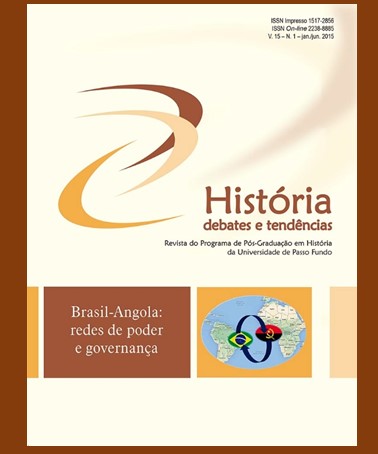Controle abstrato e concentrado de constitucionalidade comparado (Brasil, Portugal e Angola) e seus efeitos nas instituições sociais e jurídicas
DOI:
https://doi.org/10.5335/hdtv.15n.1.5284Abstract
Este artigo analisa, empírica e comparativamente, as decisões dos Tribunais Constitucionais de Portugal e de Angola e do Supremo Tribunal Federal brasileiro no controle concentrado/abstrato, verificando a validade empírica de duas hipóteses sobre o abstract judicial review: 1) a proposição sobre a regra da absorção (TSEBELIS, 2009), com tribunais não atuando contramajoritariamente ao decidir sobre legislação aprovada pela coalizão majoritária, e 2) nas decisões que envolvem atores de diversos níveis governamentais (BZDERA, 1993), se o controle abstrato restringe a descentralização a partir de prerrogativas consolidadas constitucionalmente pelo poder central. Conclusões preliminares indicam validade empírica da primeira hipótese no Brasil e da segunda hipótese no Brasil e em Portugal. Em Angola, a segunda hipótese é completamente negada. Palavras-chave: Judicialização da política comparada. Jurisdição constitucional. Controle concentrado/abstrato de constitucionalidade.Downloads
Download-Daten sind nocht nicht verfügbar.
Downloads
Veröffentlicht
2015-08-19
Ausgabe
Rubrik
Dossiê - Brasil e Angola: redes de poder e governança
Lizenz

Dieses Werk steht unter der Lizenz Creative Commons Namensnennung - Nicht-kommerziell - Keine Bearbeitungen 4.0 International.
Authors who publish in this journal agree to the following terms: Authors retain the copyright and grant the journal the right of first publication, with the work simultaneously licensed under the Creative Commons Attribution License which allows the sharing of work with acknowledgment of authorship and initial publication in this journal. Authors are authorized to take additional contracts separately, for non-exclusive distribution of the version of the work published in this journal (eg, publish in institutional repository or as a book chapter), with acknowledgment of authorship and initial publication in this journal. Authors are allowed and encouraged to publish and distribute their work online (eg in institutional repositories or on their personal page) at any point before or during the editorial process, as this can generate productive changes as well as increase the impact and the citation of the published work (See The Effect of Free Access).Zitationsvorschlag
Controle abstrato e concentrado de constitucionalidade comparado (Brasil, Portugal e Angola) e seus efeitos nas instituições sociais e jurídicas. (2015). Revista História: Debates E Tendências, 15(1), 181-197. https://doi.org/10.5335/hdtv.15n.1.5284






